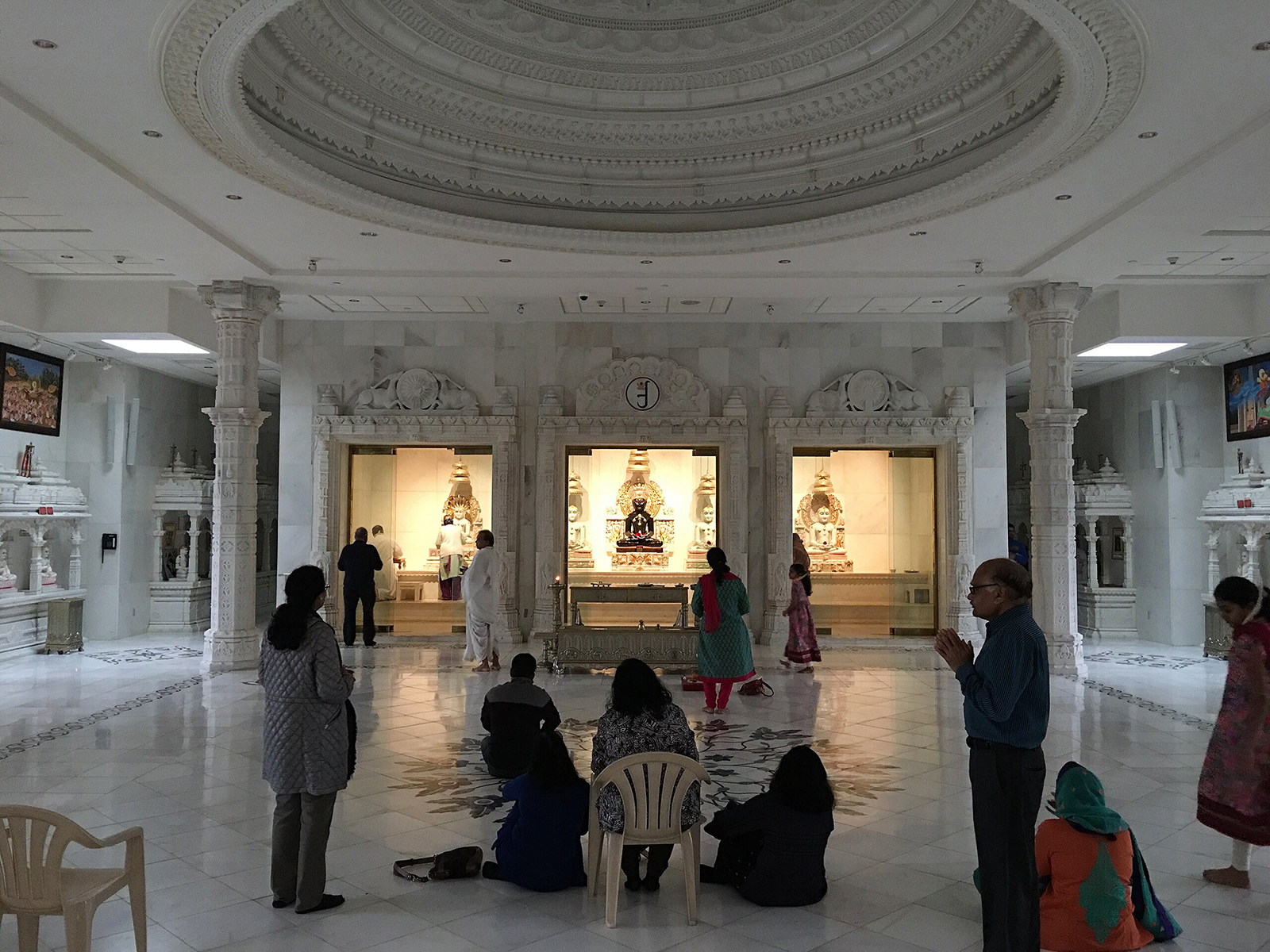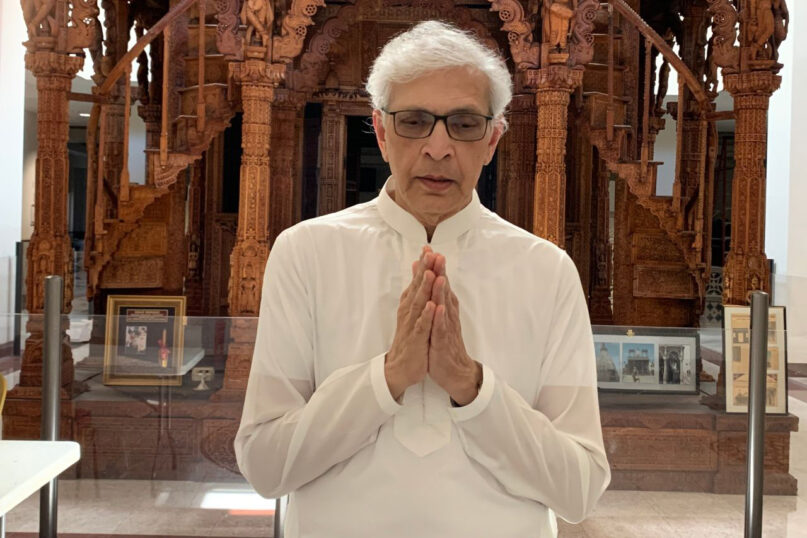
(RNS) — Dr. Jasvant Modi has had a front-row seat to the growth of the Indian community in the United States since he immigrated in 1975.
When he arrived, “there wasn’t a place where we could get together and celebrate our rituals or festivals or even a social activity,” he told RNS. “It was the beginning of the Indian community.”
Gradually, Hindu immigrants sprouted hundreds of houses of worship across the country, from single-deity altars in old church buildings to sprawling campuses with architecture rivaling India’s own.
But still, Modi, a retired physician who has lived in Los Angeles since 1983, said Jains like himself — followers of a minority Indian religion that emphasizes nonviolence and who do not believe in a ‘creator’ God — were misunderstood. When asked “Are you a Hindu?” by his patients and colleagues, Modi responded, “Not exactly.”
“Many of the principles of Jainism are kind of related to Buddhism and Hinduism, but we are not actually Hindu,” said Modi.
This misunderstanding extended to academic settings, Modi said, adding that some religious studies departments at the time hadn’t even discussed Jainism.

Dr. Jasvant Modi. (Courtesy photo)
“We felt that university education is a gnan mandir (temple of knowledge),” he said. “Somebody needs to take an initiative to make ourselves known and to change the narrative.”
A group of Jain immigrants set out to make that change starting in the early 2000s, and their grassroots efforts have paid off in the academic world. Since 2010, over 30 American universities have adopted either Jain studies lectureships, endowed chairs, distinguished professorships or postdoctoral fellowships thanks to large, individual donations from Jain families like Modi’s.
Revealed to the public last month, Modi donated $1.5 million to establish the Bhagawan Abhinandan Endowed Chair for Jain Studies and Religions of South Asia at the University of California, Los Angeles, the first endowed professorship in the field at the university.
Modi and his wife, Meera, have also given hundreds of thousands of dollars to create university programs, including at UC Santa Barbara and California State University’s Long Beach and Northridge campuses — donations he credits to his Jain beliefs.
“In Jainism, there is a value of aparigraha, which means nonpossessiveness,” said Modi, who owns and operates several assisted living facilities. “That means if you have more than you need, you should give for the benefit of other people.”
Sulekh Jain, founder of JAINA, the largest Jain organization in the U.S., said this Jain value is exemplified in the nonattachment of the families’ names to their donations. The majority of the chairs or lectureships are named after the 24 tirthankaras of Jainism, the enlightened beings who conquered the path of rebirth, rather than the about 10 families largely responsible for the gifts across American educational institutions.
“To this day, absolute nonviolence, nonpossessiveness and universal tolerance remain the guiding principles of our tradition,” Jain said at the inauguration of a Jain chair at the University of Texas at Austin on July 19. “Jainism stands among the very few faiths that define ethical values with such intellectual rigor and moral clarity.”
The fruits of the families’ labor are already visible. A professor teaching the faith estimated that 90% of students had never heard of Jainism 15 years ago, Jain said. Now, symposiums and classes are filled each semester, even waitlisted.
“(The students) looked at the problems of the world from their own Judeo-Christian glasses,” Jain told RNS. “And (the professor) said, ‘I gave them another pair of glasses — the glasses of interfaith, the glasses of nonviolence and the glasses of tolerance and living together, respecting each other.'”
Today, there are at least 45 students pursuing a doctorate in Jain studies in the U.S., he said, and donors and leaders hope to encourage more Jains to become scholars in the field.
“Jains have always been businesspeople or engineers or doctors or working in Silicon Valley,” he said. “But there are some new youth who are learning quite a lot about Jainism so that they can use that in their practice. For example, ‘Let me not create a company that destroys the environment.’ That’s where Jainism fits in — many of those values that are practical in their profession as well.”
Among the growing list of colleges with Jain educational offerings, Rice University in Houston and Georgetown University in Washington, D.C., are set to start programs later this year.
An important part of some California programs, Modi said, is for students to interact with the Jain community and see their lived religion in action — including at LA’s more than 45-year-old Jain community center, where he has long been a member.
“I believe that all religions, including Sikhism, Buddhism, Hinduism and Jainism, should be studied because no religion should exist in a vacuum,” Modi said. “You can see how all religions, more or less, if you look at the core values, (are) the same in terms of preserving humanity. We hope that this education will produce more Nelson Mandelas, more Martin Luther Kings and more Gandhis, and will make the world better.”
